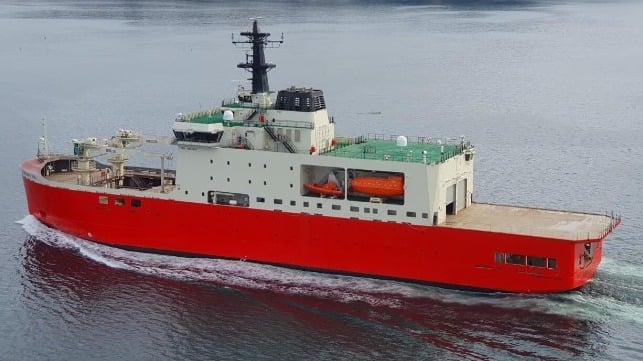Chile's President Visits South Pole to Mark Start of Research Voyage

As great-power competition intensifies in Antarctica, Chilean President Gabriel Boric opened the new year by visiting the region. The historic trip saw Boric reach the South Pole, becoming the first Latin American leader (and third leader globally) to visit the world’s southernmost point. The other two visits by heads of state include the 2007 trip by then-New Zealand Prime Minister Helen Clark and former Prime Minister of Norway Jens Stoltenberg in 2011.
Boric was accompanied by other senior government and military officials to mark the start of Chile’s new Antarctic mission, Operation Polar Star III. The expedition is a move by Chile to expand its research from the northern areas of the Antarctica Peninsula, where historically it has been involved, to include other parts, such as the Bellingshausen Sea and the Weddell Sea.
“Operation Polar Star III is a diplomatic, scientific, environmental and aeronautical milestone for Chile, which consolidates our position in the eyes of the entire world as a gateway to Antarctica. Our country’s role in the White Continent is crucial for international scientific research and to help in tackling challenges such as climate change,” said Gabriel Boric.
Notably, the expedition was also supported by other international partners such as the British Antarctic Survey and the United States’ National Science Foundation. The highlight of this international cooperation is President Boric on Friday touring the U.S Antarctic research station in the South Pole, the Amundsen Scott Station.
During the next 90 days, the Chilean research vessel Karpuj will be supporting the scientific team of the National Antarctic Science Program on trips across the Antarctic Peninsula. Chile has also recently bolstered its Antarctic research capacity by commissioning a new icebreaker Almirante Viel. The delivery of the vessel marked a major milestone for Chile as it was built in a domestic shipyard. It is the largest scientific ship to be built in South America.
With countries such as China and Russia seeking expanded influence in Antarctica, the region’s governance system is steadily shifting from a state of cooperation to competition. Historically, Antarctic states have pledged to conserve this pristine region, but this is quickly changing. Russia has reportedly been exploring Antarctica for oil and gas, an activity that is against the 1959 Antarctic Treaty.
